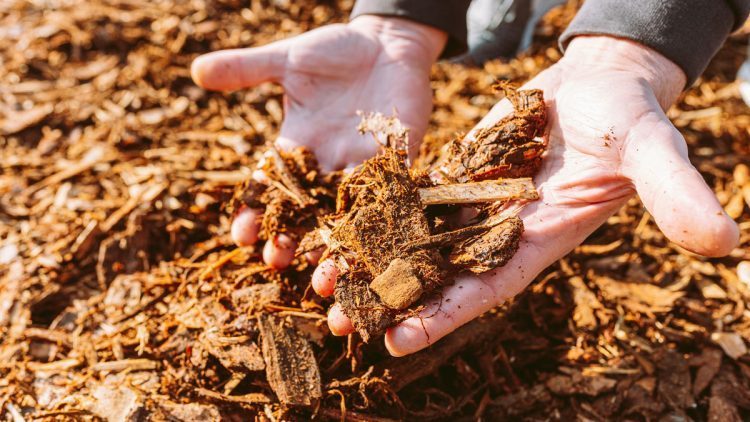Does Mulch Attract Termites
There’s a lot of uncertainty concerning mulch and termites. Many people assume mulch contains termites. Some believe it attracts them. What’s obvious is that there is an irrefutable link between termites and mulch – however, whatever that link is, is still confusing for many. Does mulch draw termites? And if that’s true, is there anything that can be done about it?
Why termites like mulch
Your legitimate concern should be what happens after you place mulch around your home. There is proof to uphold the link between termites and mulch as it involves attraction. This is the result of mulch being used for landscaping that keeps the environment moist. This is one of the advantages of mulch, as that moisture is perfect for growing foliage, flowers, trees, shrubs, etc. However, termites also have a fondness for this moisture, so do an assortment of other creepy crawlies and insects. This moist environment drives termites to investigate the area by making tiny tunnels and looking for food (cellulose, wood). The mulch offers cover for this investigation.
So, whereas the termites might not actually eat the mulch, the presence of it can certainly provide a better environment for a termite colony to begin or continue to progress. A better approach to consider the attraction matter would be to deduce that mulch increases a termite’s capability to thrive around your home when they are already there. Mulch doesn’t consequently attract termites but may serve as an invitation for them to feast on your home.
Termite-resistant mulch
Some kinds of wood are favored by termites, whereas others can act as an obstruction or even be deadly to these wood-eating insects. Loblolly pine and slash pine, and Cypress sapwood are preferred by termites. Eucalyptus, cypress heartwood, southern tidewater red cypress, melaleuca, and California redwood reduce a termite’s chance of survival in comparison to a normal food source, like white birch.
Cypress heartwood has been graded as termite-resistant, from research showing that extracts from this wood stave off termites. Likewise, when you place cedar mulch, termites are going to be very unhappy. Unprocessed, wood-bedded mulches are not going to give termites a source for heavy feeding. However, the existence of mulch in your yard can produce a setting which is advantageous to colonization encompassing your home.
Avoiding termites in mulch
There are some straightforward steps you can take to decrease the risk related with termites and mulch:
Proper mulch execution: Apply mulch in a thin layer, in a perfect world no more than two to three inches deep and keep mulch at a minimum of twelve to eighteen inches away from the foundation of buildings to produce a protected area.
Moisture management: Stay away from saturating mulch beds and guarantee correct drainage around your property to avoid undue moisture, which can appeal to termites.
Routine termite inspections: Have routine termite inspections by a professional pest control organization and examine mulch beds and nearby areas by yourself for signs of termite activity, like mud tubes and blemished wood.
Landscaping habits: Avoid planting trees or foliage too close to your foundation.
Structural safeguards: Seal cracks and gaps in the foundation to stop termite entry and avoid straight wood-to-ground contact by utilizing treated lumber and maintaining clearance between wooden structures and the ground.
Replacing Mulch: Replace mulch regularly, at least annually, to decrease the buildup of decomposed material that can entice termites and remove older mulch prior to adding new layers to avoid unreasonable accumulation.

